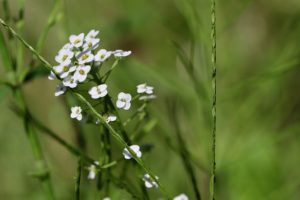APPLICATIONS OF TECHNOLOGY:
- Health diagnoses (e.g., biomarker analysis)
- Environmental monitoring (e.g., soil, drinking water)
- Beauty and health (i.e. living therapeutics for skin conditions)
- Agriculture
- Drugs (i.e. search for biosensors associated with diseases)
BENEFITS:
- Uses a DNA-barcoded promoter library and offers a rapid way to screen and identify biosensors for chemicals and physical conditions associated with host physiology (e.g., pH, temperature)
- Overcomes low cell issues in their native environments by enabling the high throughput characterization of putative promoter activities
BACKGROUND:
- Recovering high concentrations of transcripts is technically challenging for bacteria colonizing within the host environments. The functions of the rich metagenomic resources are yet to be explored.
TECHNOLOGY OVERVIEW:
To improve the ability to quantify transcriptional activity of bacterial genes, researchers at Berkeley Lab have developed a technology, PiSeq, to rapidly screen and identify biosensors for chemicals and physical conditions associated with host physiology.
Researchers reproducibly characterized the activities of about 2900 promoters out of a total of 5506 promoters. A majority of promoters exhibited native promoter activities based on the analysis against RNA-Seq. In a preliminary experiment, they traced promoter activity changes during early colonization (for three days) on Arabidopsis thaliana seedlings and identified 114 up-regulated and 82 down-regulated promoters. A pathway analysis revealed biofilm genes are up-regulated, while metabolism-related genes (ribosome, amino acid, and lipid synthesis) are down-regulated. Additional results include the identification of 18 promoters that were up-regulated when the Arabidopsis were infected by Pseudomonas syringae, including those encoding to detect various metabolites. The technology will enable tool development to identify biosensors (e.g., promoters, transcriptional factors) that can detect various physiological and chemical signals from hosts and environments that bacteria are associated with.
Current work includes identifying transcriptional start sites (TSSs) and extracting longer regulatory regions for creating promoter libraries to increase the coverage and accuracy of promoter activity.
DEVELOPMENT STAGE: Proven principle
FOR MORE INFORMATION:
Publication citation (if any)
PRINCIPAL INVESTIGATORS:
STATUS: Patent pending.
OPPORTUNITIES: Available for licensing or collaborative research.
SEE THESE OTHER BERKELEY LAB TECHNOLOGIES IN THIS FIELD:
A Universal Approach to Integrate and Express Pathways in a Broad Range of Bacteria 2016-024
